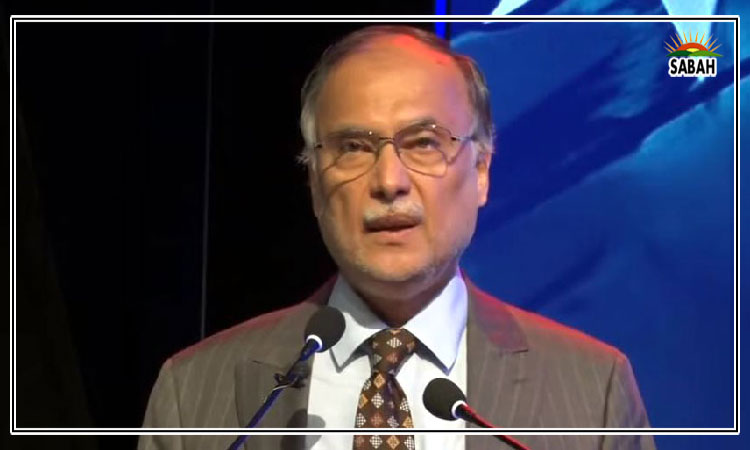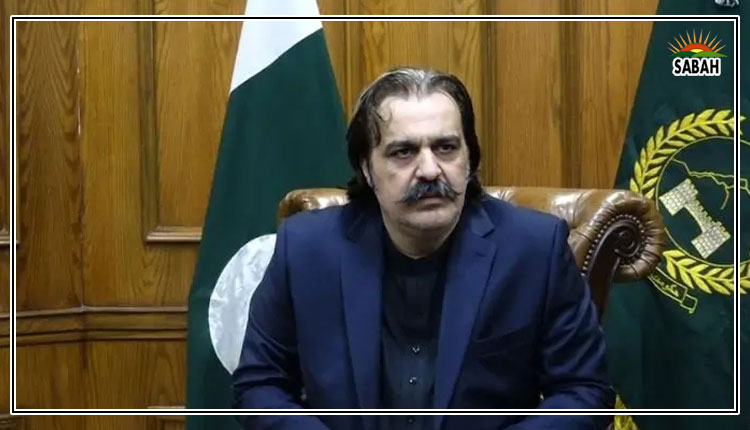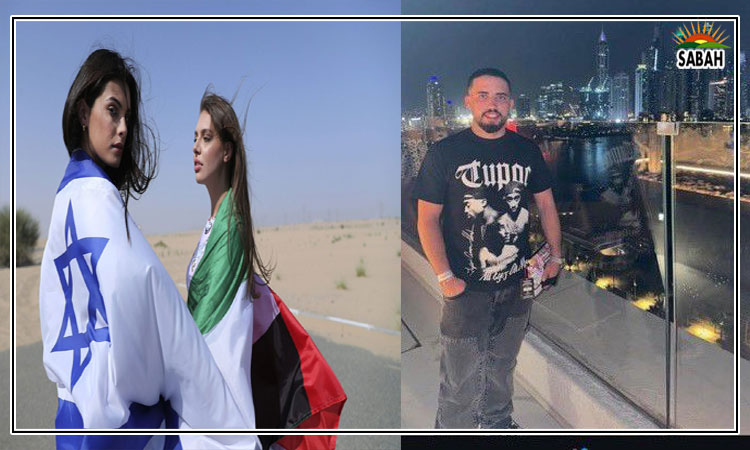UAE authorities arrange exclusive entertainment programs for Israeli soldiers involved in the ongoing Gaza war
DUBAI, Sep 08 (SABAH): The United Arab Emirates (UAE) authorities have arranged exclusive entertainment programs for Israeli soldiers involved in the ongoing Gaza war, including those responsible for brutal massacres and bloody crimes against Palestinian civilians.
Hebrew media reports disclosed that the Israeli Ministry of Defense is coordinating with an Emirati government committee to facilitate regular visits by Israeli soldiers to the UAE for recreational breaks before resuming their combat roles in Gaza.
According to the reports, these entertainment programs are designed for soldiers who have served long stints in the Gaza Strip, offering them a chance to unwind in Dubai and distance themselves from the escalating tensions in both Gaza and the Lebanon border.
It further explained that in the past two months, more than 5,000 Israeli soldiers have enjoyed vacation benefits in Dubai, fully covered by an Emirati government program funded by Abu Dhabi.
This includes Israeli soldier Eyal Haksher, known for his role in Gaza’s destruction and documented involvement in massacres last April.
Haksher recently posted photos of himself on a tourist visit to the UAE, freely exploring Jumeirah in Dubai with full security and protection, provided by the Emirati authorities.
Amid widespread suspensions of international flights to and from Israel, the UAE is expanding its flights to Tel Aviv to facilitate the return of an estimated 150,000 Israelis stuck abroad.
Emirates Airlines is increasing its flights between Abu Dhabi and Tel Aviv, as the UAE has become the destination for those stranded to return.
The Emirati airline launched its flights between Abu Dhabi and Tel Aviv in April 2021, around eight months after the signing of the ‘Abraham Accords,’ which formalized the normalization of relations between Israel and the UAE.
Pro-Israel Democratic U.S. Representative Ritchie Torres condemned the suspension of flights by American and international airlines to Tel Aviv, while UAE airlines continue operating in partnership with Israel.
Torres, who has received large donations from the Zionist lobby in the U.S., questioned: ‘How can it be unsafe for American Airlines, Delta, and United to fly to Israel, yet Emirati airlines such as Etihad, Flydubai, and Wizz Air Abu Dhabi still operate flights to Tel Aviv?’
He also criticized the decision of U.S. airlines to halt flights, which has made travel to Tel Aviv more difficult and costly.
Meanwhile, American Airlines will continue its suspension until March 29 of next year, and United Airlines has announced that its suspension will remain in effect indefinitely.
American Airlines, Delta, and United suspended their flights to Israel starting October 7. Delta has since extended its suspension until October 31.
Torres pointed out that, unlike in 2014 when the Federal Aviation Administration imposed a 36-hour ban on American flights to Ben Gurion Airport, there has been no travel ban to Israel issued since October 7.
Official Israeli statistics show that trade between the UAE and Israel has exceeded $1.5 billion so far this year, even as violence continues in Gaza and the West Bank.
According to a report from the Israeli Central Bureau of Statistics, the volume of trade between Israel and the UAE saw an increase during the first half of 2024.
International news outlets and websites, referencing data from the “Abraham Accords Peace Institute” obtained from the Israeli Central Bureau of Statistics, reported that trade between Israel and the UAE reached $271.9 million in June 2024.
These figures reflect a 5% increase from the same month last year, with the total trade exchange between the two nations reaching $1.66 billion during the first half of the year. This represents a 7% growth compared to the same period in 2023.
The Abraham Accords Peace Institute, an American non-profit and non-partisan organization dedicated to advancing and expanding peace agreements between Israel and Arab nations, was established by Jared Kushner, former senior advisor and son-in-law to ex-US President Donald Trump, in September 2021. The institute was launched on the first anniversary of the signing of four peace agreements between Israel and Arab countries.
The Abraham Accords, facilitated by the United States, include normalization agreements between the UAE, Bahrain, and Israel, signed in August 2020, with Morocco joining later.
Successive events have shown that there is no contradiction or hesitation in the UAE’s policy towards Israel, as its rulers, the “sons of Zayed,” have made up their minds a long time ago: they are with Israel in every way, and with crushing Hamas and all Palestinian resistance factions. They are even more enthusiastic about the so-called “accomplishing the mission” than Israel itself.
The Lebanese newspaper “Al-Akhbar” said that the UAE does not hesitate to invest directly in Israeli crimes; this week alone witnessed two events at this level.
The first is the announcement of the establishment of a branch of the Israeli company “Rafael” in Abu Dhabi to convert Emirates Airlines planes into cargo planes; and the second is the rescue of the financially struggling Israeli businessman, Patrick Drahi, by pumping a billion dollars in direct investment in the Sotheby’s auction house owned by him, after Qatar rejected him due to the ongoing genocide in Gaza.
It is worth noting that Darahi owns the Israeli channel “HOT” and the “i24” news network, which strongly defends the Israeli massacres in Gaza.
Hardly a week passes since the signing of the “Abraham Accords” in September 2020, without entering into a new investment in or with Israel, although announcements of figures reflecting the growth of trade relations between the two sides declined during the war.
The latest of these was the announcement by the Israeli ambassador to the UAE, Amir Hayek, in the middle of last year, that trade exchange with Israel amounted to $1.29 billion in the first five months of 2023, excluding software trade, the size of which was not announced.
The Emirati “Gallant Knight” initiative, which has seen three iterations so far, is criticized for lacking true nobility and generosity. These qualities would entail boycotting the aggressor responsible for the suffering of Palestinians, rather than contributing to its apparatus of brutality.
The aid provided by the Gulf state to the Palestinians in Gaza is in no way comparable to what is produced by the “corridor” that was opened to Israel via Saudi Arabia and Jordan, to provide Israel with everything it needs from the Emirati ports, after the “Ansar Allah” movement succeeded in imposing a siege on the Israeli port of Eilat in the Red Sea.
There’s a possibility that this limited assistance is actually a component of a broader soft war, working in tandem with Israel’s destructive actions in Gaza. It seems to have questionable goals that could eventually facilitate the role of the “Eyal Zayed” regime in Gaza once the war is over.
Since this role is needed by Israel, Abu Dhabi might establish a functioning field hospital in Gaza that avoids destruction, while Palestinian hospitals throughout the region are being demolished.
Thus, the UAE could establish bakeries in Gaza that remain untouched by bombings, while the enemy destroys every other bakery. Similarly, the UAE might evacuate a thousand wounded individuals from Gaza and treat them in its hospitals, leaving those who cannot be evacuated to die.
The UAE is leading efforts to shape Gaza’s post-war management. It played a key role in facilitating aid through Cyprus until the Israelis intervened upon noticing that Palestinians in Gaza were potentially starting to experience some relief for the first time since the war began.
In all the proposed plans from the Americans and Israelis for managing Gaza after the war, the UAE consistently ranks high, fulfilling its role as a “Gallant knight” with great dedication.
Through these efforts, the UAE is currently offering limited aid, which could increase over time, as a potential alternative to Hamas’s management of Gaza. This includes current aid distribution and possibly future sector management, especially since Abu Dhabi has the capability, particularly through Mohammed Dahlan and his group.
There are also internal Emirati motives; this aid might be seen by many Emiratis as a humanitarian effort on their behalf, addressing the growing local frustration with their country’s ties to Israel due to the ongoing violence in Gaza.
In the end, with Israel’s apparent aim being either to eradicate or displace Palestinians from Gaza, the UAE’s role as the “noble knight” seems to be a means of preparing Palestinians for further sacrifices under the guise of aid.
What the UAE can do for Israel, no one else can, and the failure of the US sea bridge is a clear example of that.
The newspaper concluded that the UAE, being an Arabic-speaking nation, is uniquely positioned to communicate with Palestinians in the Gaza Strip. It can exert influence by being the sole channel through which aid can reach their mouths and stomachs amidst the hunger.
So far, the Emirati role has not escalated to directly challenging the resistance, which remains focused on ensuring that even a minimal amount of aid reaches the Palestinians, regardless of the source.












